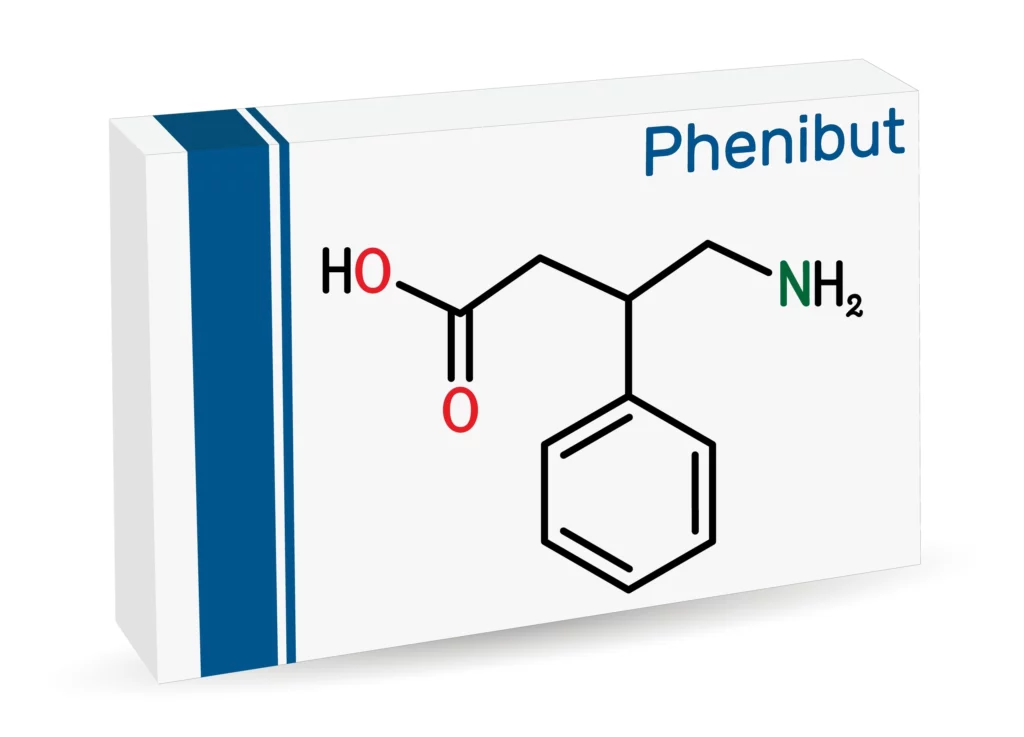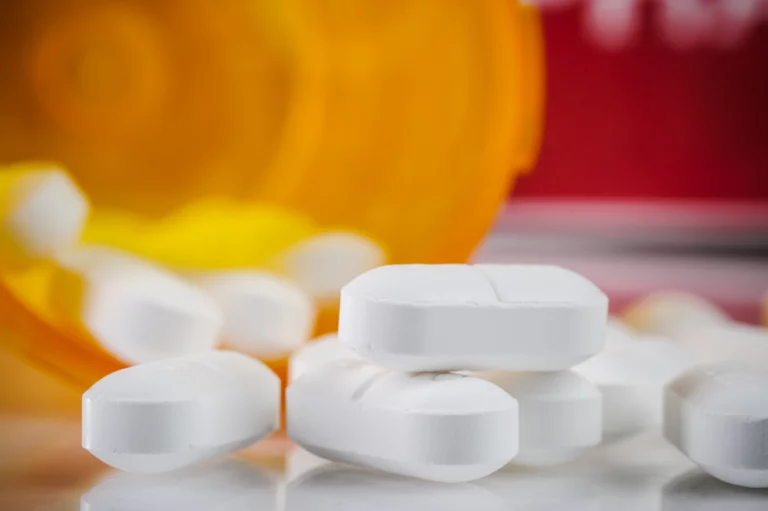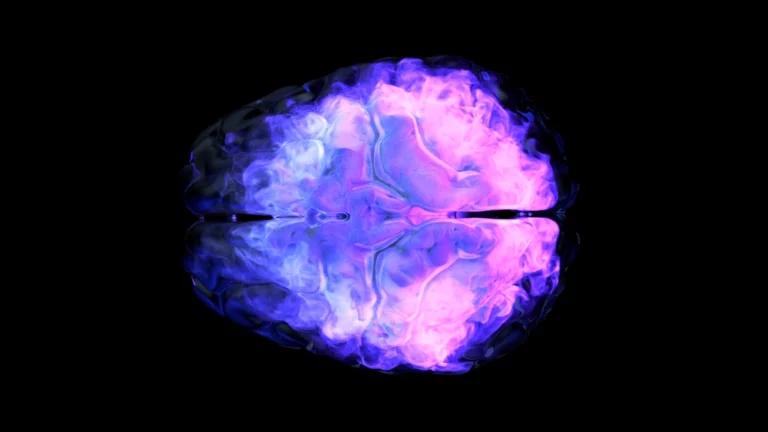Phenibut has gained attention for its ability to soothe anxiety and improve sleep. While it offers benefits, improper use can lead to significant risks. In today’s article, we’ll explain how Phenibut works, its typical uses, and its impact on our minds and bodies. Our goal is to provide a clear picture of why it’s important to use Phenibut responsibly and be aware of the potential withdrawal risks that come with it.

What Is Phenibut?
Phenibut is known for its calming influence, which imitates the brain’s GABA neurotransmitter to bring about relaxation and improved mental clarity. Many turn to it for reducing anxiety and boosting cognitive abilities. But there’s a catch. With regular use, your body can start developing a Phenibut dependency, which can cause discomfort or adverse reactions when it’s not in the system. This can lead to a tricky situation where your brain needs Phenibut to function normally.
What Are The Risks Of Long-Term Phenibut Use?
Considering these potential dependencies, it’s important to be aware of the specific risks associated with prolonged or heavy use of Phenibut:
- Dependency risk: Increased likelihood of physical dependence and withdrawal symptoms.
- Brain chemistry alteration: Potential reduction in natural GABA responsiveness.
- Tolerance development: Necessity for higher doses to achieve desired effects.
- Withdrawal symptoms: Anxiety, agitation, insomnia, and potentially severe psychological effects.
- Impact on mental health: Risks of exacerbated anxiety and mood disturbances.
- Potential for abuse: Misuse can lead to health complications.
- Interactions with other medications: Possible adverse interactions affecting efficacy and safety.
- Need for medical supervision: Critical to manage dosage and monitor side effects.
Read more: Cocktail Drugs: A Closer Look at Polydrug Use

How Phenibut Withdrawal Affects Your Brain and Body
Given these risks, it’s clear that managing your use of Phenibut is vital. But what happens if you decide to stop taking it, especially after long-term use? Let’s talk about the withdrawal symptoms you might face.
Withdrawal from Phenibut can be tough and impact both your mind and body. Here’s a quick rundown of what you might experience:
- Anxiety and panic: Expect a noticeable uptick in anxiety, sometimes even leading to panic attacks.
- Sleep troubles: You might find it hard to fall asleep or stay asleep, messing with your regular sleep routine.
- Mood fluctuations: Get ready for some mood swings – one moment, you’re calm. The next, you might feel irritable.
- Stomach upset: It’s common to experience nausea and vomiting.
- Muscle discomfort: Your muscles might tense up, causing aches and pains.
- Focus issues: Concentrating or remembering things could become more challenging.
- Racing heart: Don’t be surprised if your heart seems to beat faster.
- Seeing or hearing things: In rare cases, you might have visual or audible hallucinations.
- Dizziness and headaches: Feeling lightheaded or dealing with headaches is pretty standard.
- Feeling worn out: You could feel tired or fatigued during your usual energetic hours.
Everyone’s experience can vary, especially based on the severity of your Phenibut addiction and how long and how much Phenibut you’ve used. If these symptoms overwhelm you, talk to a healthcare professional. They’re the best bet for guiding you safely through withdrawal and keeping things manageable.
Read more: Addiction Vs. Obsession: 10 Common Examples
Strategies & Safety Tips Phenibut Withdrawal Safely
Navigating the waters of Phenibut withdrawal can be tricky, but with the right approach and professional support, it’s more manageable. Here are some steps to take for a safer withdrawal experience:
- Start with medical detox: It’s usually the first move. In a medical detox setting, trained staff watch over your symptoms, providing care to make the process smoother and safer. It’s all about managing those tough moments in a space that’s geared for healing.
- Seek expert advice: Talk to professionals who understand addiction. They can tailor a withdrawal plan just for you, which might mean slowly reducing your Phenibut dose to ease those symptoms.
- Consider medication-assisted treatment: Sometimes, doctors may prescribe meds to help with tough symptoms like anxiety or trouble sleeping. This should always be under close medical watch.
- Supportive therapies are key: Counseling or therapy can be a game-changer. It’s about tackling the deeper issues linked to Phenibut use and learning new ways to handle life’s ups and downs.
- Don’t forget nutrition: Eating right and staying hydrated is part of the healing process. Sometimes, you might need some extra vitamins or supplements to give your body additional support.
- Relaxation techniques: Meditation, yoga, or deep breathing can help with stress and anxiety.
- Connect with peers: Support groups are great for sharing experiences and getting advice from those in your situation.
- Build a support network: Having friends and family who “get it” can make a world of difference.
- Plan for aftercare: Recovery doesn’t end once you finish the detox and treatment process. Developing an aftercare plan that sets you up for long-term success is important. This might mean ongoing therapy or lifestyle changes, all to keep you moving forward on your recovery path.

Phenibut Addiction Treatment In Knoxville, TN
At Knoxville Recovery Center, we’re all about helping you beat addiction your way. Let’s walk through how we can support you on this important journey:
- We’ve got a range of programs, from medical detox to aftercare treatment. Our team works with you to find the perfect fit, adjusting the level of care as you progress.
- Our therapeutic nutrition program is more than just healthy eating. We mix yoga and mindful meditation to help you feel good inside and out.
- Our treatment center is designed to be a peaceful haven. It’s all about creating a space where healing feels natural.
- We know everyone’s different. Our specialists put together a plan for you, considering everything from cultural background to personal challenges.
- Being part of Health Care Alliance North America means we’re with you every step of the way, from detox to outpatient care, ensuring a smooth transition at every stage.
- As an accredited addiction treatment provider, we always push to give you the best care possible.
- We believe in treating you as an individual, not just a number. Our team is here to give you the support and care you need to thrive in your recovery.
- We’re more than just a treatment center – we’re a partner in your journey to a healthier, happier life.
Contact Knoxville Recovery Center
Beating addiction isn’t just a goal. It’s a journey that’s unique for everyone. That’s where we come in. At Knoxville Recovery Center, our whole focus is on walking with you, step by step, toward a life of recovery. We’re here to give you all the tools and backing you need to ensure your journey to sobriety is successful and lasting.
Are you thinking of taking this big step and fighting your Phenibut addiction? We’re here to help. Whether it’s for you or a loved one, don’t hesitate to reach out. Call or visit our website for more information and to start your journey towards a healthier, fulfilling life. Let’s make this happen together.








